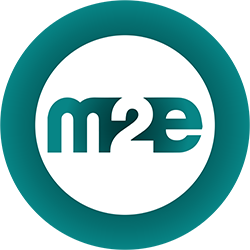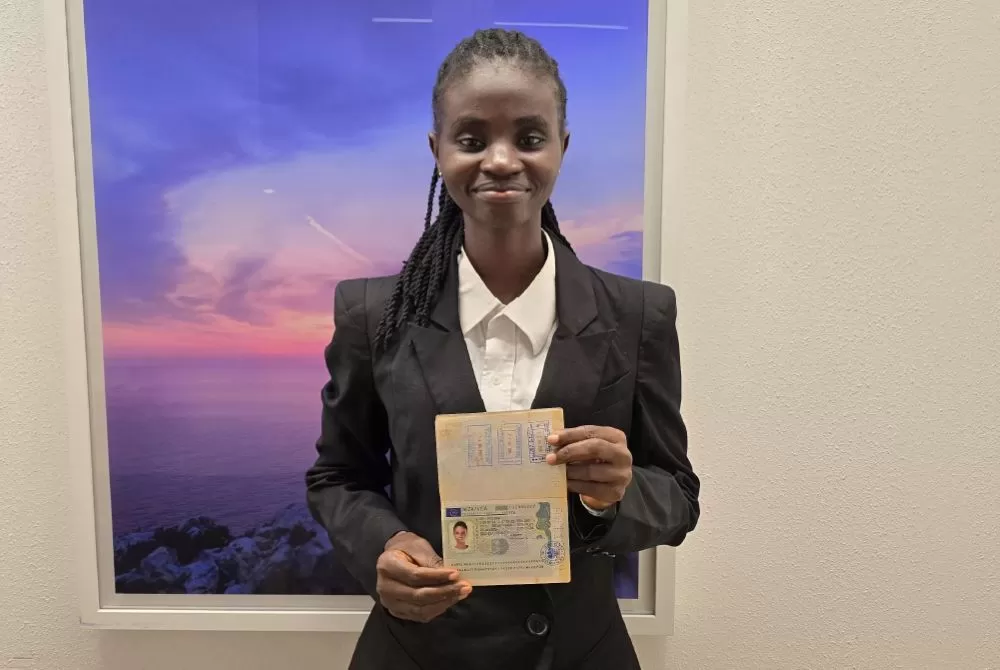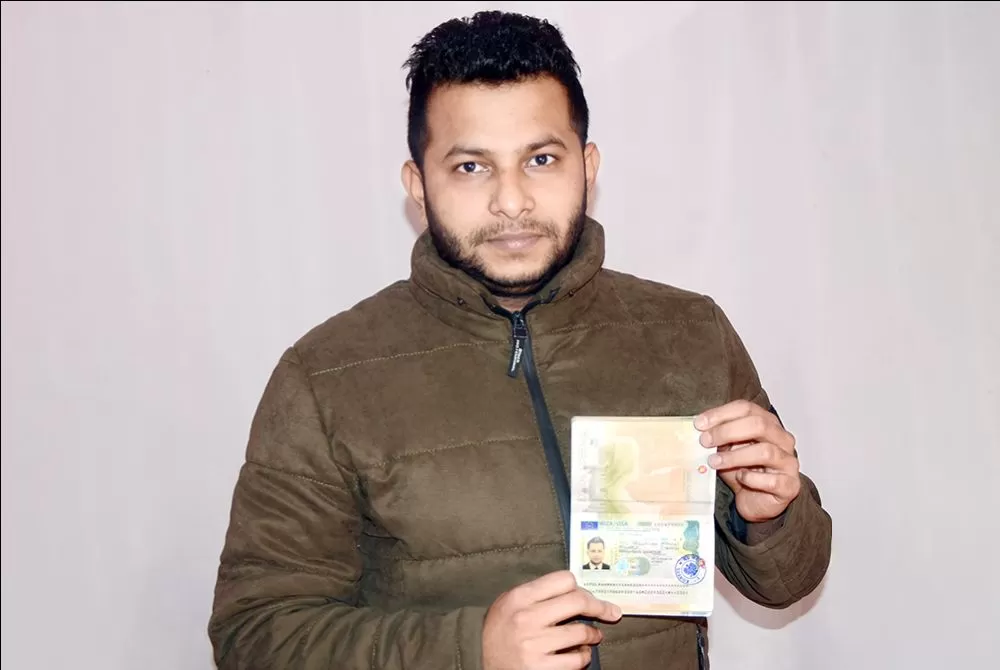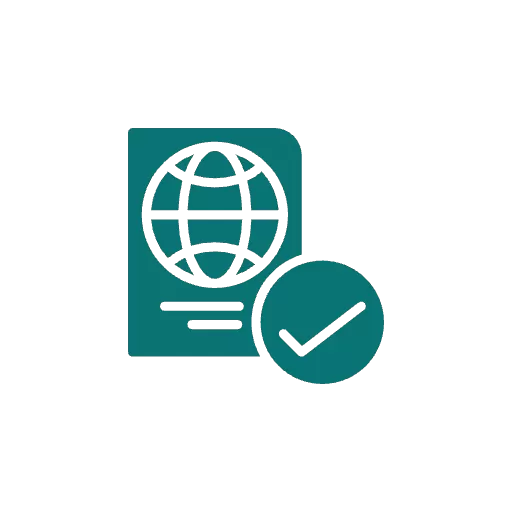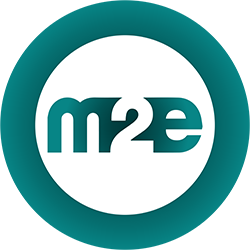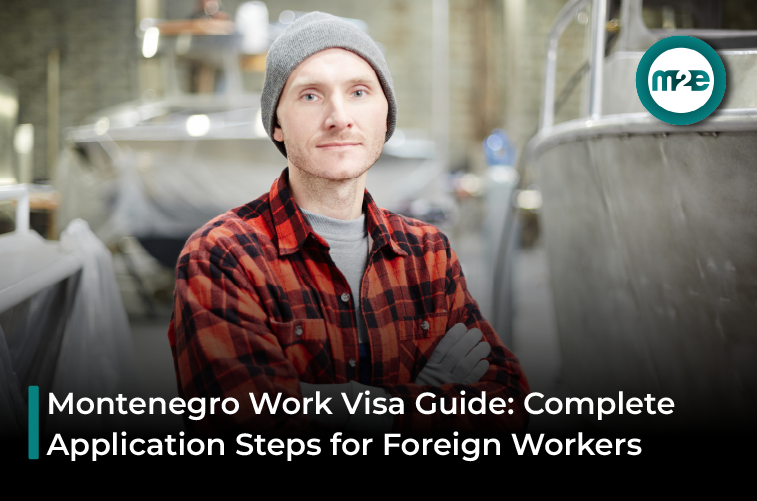
Montenegro Work Visa Guide: Complete Application Steps for Foreign Workers
Montenegro, a small but beautiful Balkan country on the Adriatic coast, is attracting growing interest from foreigners looking for work and a new life in Europe. Known for its stunning beaches, mountain landscapes, and tourism-driven economy, Montenegro is not yet a member of the EU but is officially a candidate country. Its strategic location and demand for workers in both blue-collar and white-collar sectors make it a promising destination for foreign employees.
This guide provides a step-by-step explanation of how to work legally in Montenegro, including job opportunities, visa and permit requirements, housing, long-term residence, and more.
Country Basics
- Capital: Podgorica
- Currency: Euro (€)
- Population: ~620,000
- EU/Schengen: Not yet, but Montenegro is an EU candidate and expected to join in the future.
- Official Language: Montenegrin (Serbian, Bosnian, Albanian, and Croatian are also widely spoken).
Safety, Social Benefits & Emergency Services
Montenegro is generally safe, especially in smaller towns and tourist areas. Petty theft may occur in crowded places, but violent crime is rare.
- Emergency Number: 112 (covers police, ambulance, and fire services).
- Foreigners employed legally contribute to the social security system, which provides healthcare, maternity leave, pensions, and unemployment benefits.
Job Opportunities in Montenegro
The economy relies heavily on tourism, construction, transport, agriculture, and services. Salaries are lower than in Western Europe, but the cost of living is also more affordable.
Blue-Collar Jobs
|
Job Role |
Typical Gross Monthly Salary |
|---|---|
|
Construction Worker |
€500–€750 |
|
Waiter/Hotel Staff |
€450–€650 |
|
Truck/Bus Driver |
€550–€800 |
|
Agricultural Worker |
€400–€600 |
|
Factory Operator |
€500–€700 |
White-Collar Jobs
|
Job Role |
Typical Gross Monthly Salary |
|---|---|
|
IT Specialist |
€900–€1,500 |
|
Accountant |
€600–€950 |
|
Engineer |
€800–€1,200 |
|
Nurse/Healthcare |
€650–€1,000 |
|
Sales/Marketing |
€600–€1,000 |
Minimum Wage: ~€450/month
Average Salary: ~€800/month
Where to Find Jobs
Foreigners can find employment through:
- Employment Agency of Montenegro (ZZZCG) – the government's official job service portal.
- Licensed recruitment agencies and international job boards.
- Trusted platforms, such as Moving2Europe.eu, connect workers with employers.
Employment Agency of Montenegro (ZZZCG)
Types of Work Permits & Visas
Work Permits:
- Temporary Work Permit: The standard option, tied to a specific employer. Valid for up to 1 year.
- Seasonal Work Permit: Common in tourism and agriculture. Valid for up to 6 months.
- Self-Employment Permit: For foreigners who establish businesses in Montenegro.
Visas:
- Type D Visa (Long-Stay): Required for foreigners entering Montenegro for work.
- Type C Visa (Short-Stay): For business trips or assignments up to 90 days.
Validity:
- Temporary permits: valid up to 1 year, renewable.
- Seasonal permits: valid 6 months per year.
- Long-stay D visas are typically issued for 90–365 days, depending on the type of employment.
Step-by-Step Process
- Secure a Job Offer – from a registered Montenegrin employer.
- Employer submits a work permit application to the Ministry of Interior or a local branch office.
- Prepare your documents, including your passport, job contract, health insurance, accommodation proof, financial means, qualifications, and police clearance.
- Apply for a D Visa at the nearest Montenegrin embassy or consulate.
- Travel to Montenegro – once your visa is approved.
- Collect Your Work & Residence Permit – issued by local authorities after arrival.
Required Documents Checklist
- Valid passport (at least 6 months' validity)
- Signed employment contract
- Completed application form
- Passport-sized photos
- Proof of qualifications/experience
- Health insurance valid in Montenegro
- Proof of accommodation (lease or employer-provided housing)
- Proof of financial means
- Police clearance certificate
- Fee payment receipt
Housing & Real Estate
Montenegro offers affordable housing compared to most of Europe. Rental prices vary between the coast (more expensive) and inland areas (cheaper).
- Expect to pay 1–2 months' deposit when renting.
- Always sign a written lease agreement.
- Check property details with the Real Estate Administration of Montenegro before signing.
Real Estate Administration of Montenegro
If Your Visa is Refused
- Authorities provide a written refusal decision.
- You have 15 days to file an appeal.
- Appeals must be submitted with additional documentation or corrections.
Permanent Residence (PR) in Montenegro
Eligibility:
- At least 5 years of continuous legal residence with valid permits.
- Proof of stable income, health insurance, and accommodation.
- No significant legal or immigration violations.
Documents Required:
- Passport
- Previous permits and visa history
- Proof of employment or self-employment
- Accommodation proof
- Health insurance
- Police clearance
- Social security and tax contribution records
Timeline:
- PR applications typically take 2–4 months.
- Citizenship may be available after 10 years of legal residence (with integration and language requirements).
Key Government Resources
- Employment Agency of Montenegro (ZZZCG): https://www.zzzcg.me
- Ministry of Interior – Migration & Permits: https://www.mup.gov.me
- Ministry of Foreign Affairs: https://www.gov.me/mfa
- Real Estate Administration of Montenegro: https://www.nekretnine.co.me
How Moving2Europe.EU Helps You
Moving to Montenegro can feel overwhelming without the proper support. At Moving2Europe.eu, we help you every step of the way:
- Access to verified job opportunities in both blue- and white-collar sectors.
- Guidance through work permit and visa applications.
- Help with embassy submissions and document preparation.
- Advice on housing, insurance, and relocation.
- Long-term assistance with appeals, renewals, PR, and family reunification.
Take the first step today: Register Now
Frequently Asked Questions (FAQs)
1. What is a Montenegro work visa?
It allows foreigners to enter the country legally for employment.
2. Who needs a work visa for Montenegro?
All non-citizens who want to work must apply for a work visa and permit.
3. How long does the process take?
Usually 30–60 days, depending on documents and workload.
4. Can I apply without a job offer?
No, a confirmed job offer is required.
5. How long is a Montenegro work permit valid?
Typically up to 1 year, renewable.
6. What is a seasonal work permit?
A permit for short-term jobs in agriculture or tourism, valid up to 6 months.
7. What visa type do I need for long-term work?
A Type D (long-stay) visa.
8. What documents are required?
Passport, job contract, accommodation proof, health insurance, financial means, and police clearance.
9. Do I need health insurance?
Yes, it's mandatory for all work visa holders.
10. Can I bring my family with me?
Yes, through family reunification permits.
11. What is the minimum wage in Montenegro?
About €450/month.
12. What is the average salary?
Around €800/month.
13. What sectors hire the most foreigners?
Tourism, construction, transport, IT, and agriculture.
14. Do I need to speak Montenegrin?
It helps, but English is often enough in tourism and international companies.
15. Can I change employers on the same permit?
No, a new permit is required if you switch employers.
16. What happens if my visa is rejected?
You can appeal within 15 days.
17. How long before I can get permanent residence?
After 5 years of continuous legal stay.
18. What documents are required for PR?
Passport, proof of income, accommodation, insurance, police clearance, tax and social contribution records.
19. When can I apply for citizenship?
Usually, after 10 years of legal residence.
20. How can Moving2Europe? Can you help me?
By connecting you with employers, guiding visa applications, and supporting relocation and PR. Register Now
